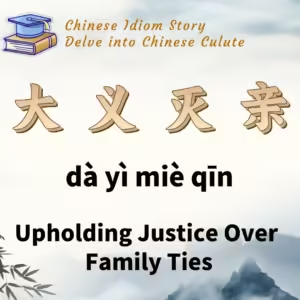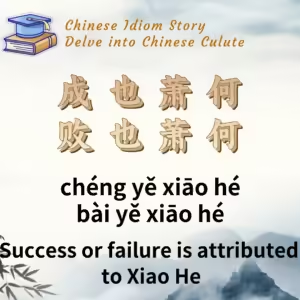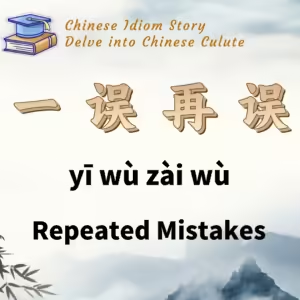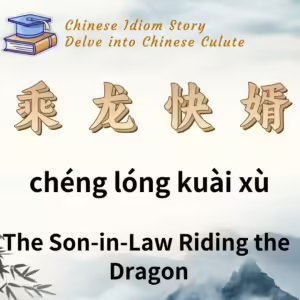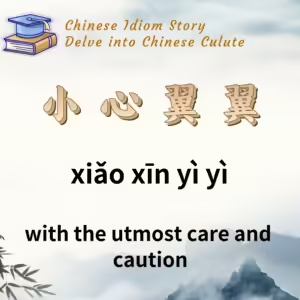
Chinese Idiom: 惩前毖后 (Cheng Qian Bi Hou)
English Translation: Punish the past to prevent future mistakes
pīn yīn: chéng qián bì hòu
Idiom Meaning: This idiom means to take past mistakes as lessons to be cautious in the future, preventing similar errors from occurring again.
Historical Source: The idiom originates from The Book of Songs (《诗经》), specifically from the poem Xiao Bi (《小毖》).
Idiom Story:
After the death of King Wu of Zhou (周武王), his son, King Cheng (成王), ascended the throne. Due to King Cheng’s young age, his uncle, Duke Zhou (周公姬旦), helped him manage the state affairs. However, two other uncles, Guan Shu (管叔) and Cai Shu (蔡叔), were dissatisfied with Duke Zhou’s authority and spread rumors about him, claiming that he intended to dethrone King Cheng.
To avoid conflict, Duke Zhou chose to leave King Cheng and temporarily reside elsewhere. In this vacuum, Guan Shu and Cai Shu colluded with Wu Geng, the son of the tyrant King Zhou of Shang, to launch a rebellion aimed at seizing power. King Cheng commanded Duke Zhou to lead troops eastward, and after three years of warfare, they successfully quelled the rebellion. Duke Zhou continued to assist King Cheng in governance until the young king was mature enough to assume full control.
On the day King Cheng formally took over the throne, a grand ceremony was held in the court, during which he delivered a speech. In his address, he reflected on the rumors spread by Guan Shu and others against Duke Zhou, stating, “I will take lessons from the past and be cautious to prevent future troubles.”
This statement was later simplified and became the idiom “惩前毖后,” encapsulating the wisdom of learning from past mistakes to avoid repeating them in the future.

